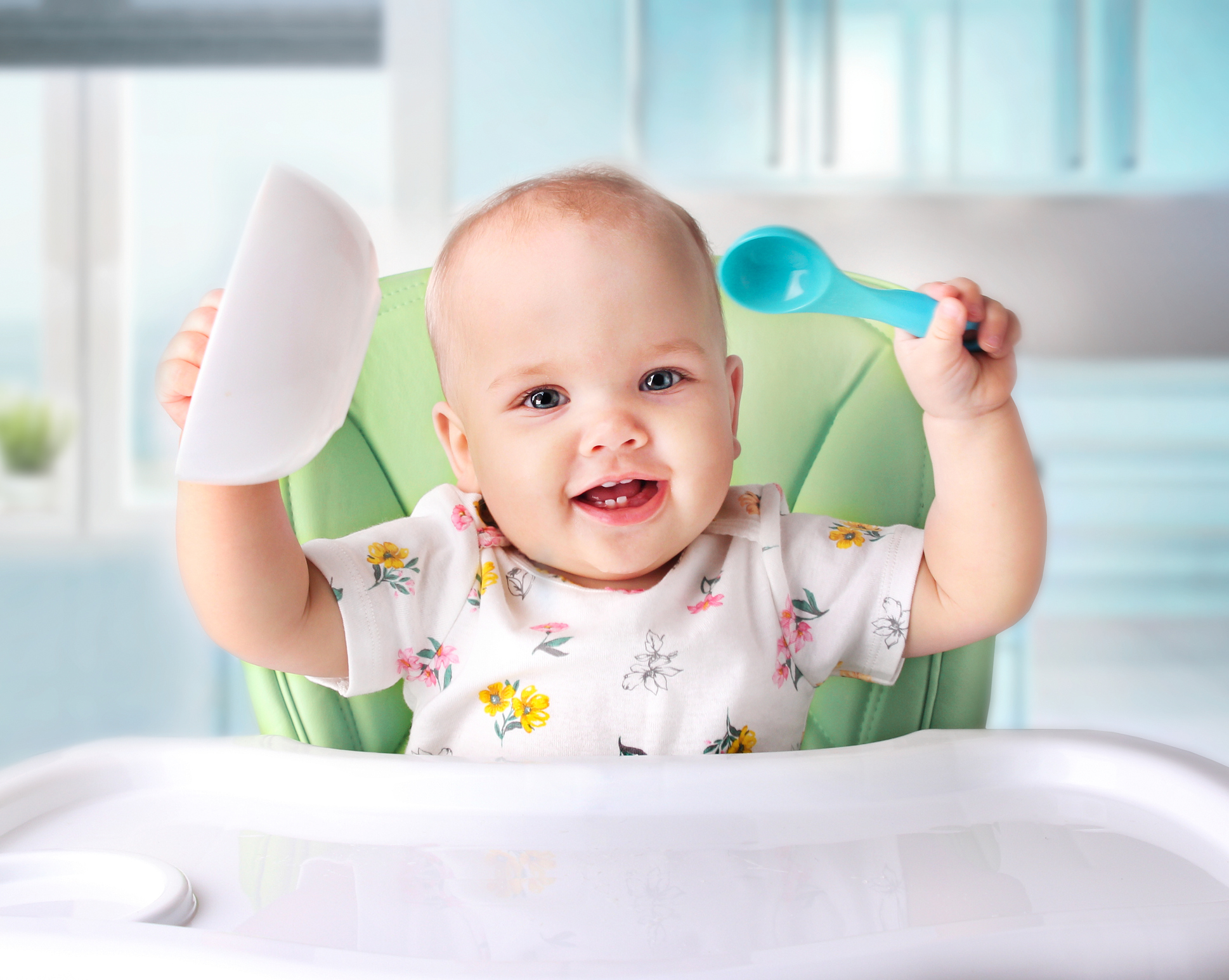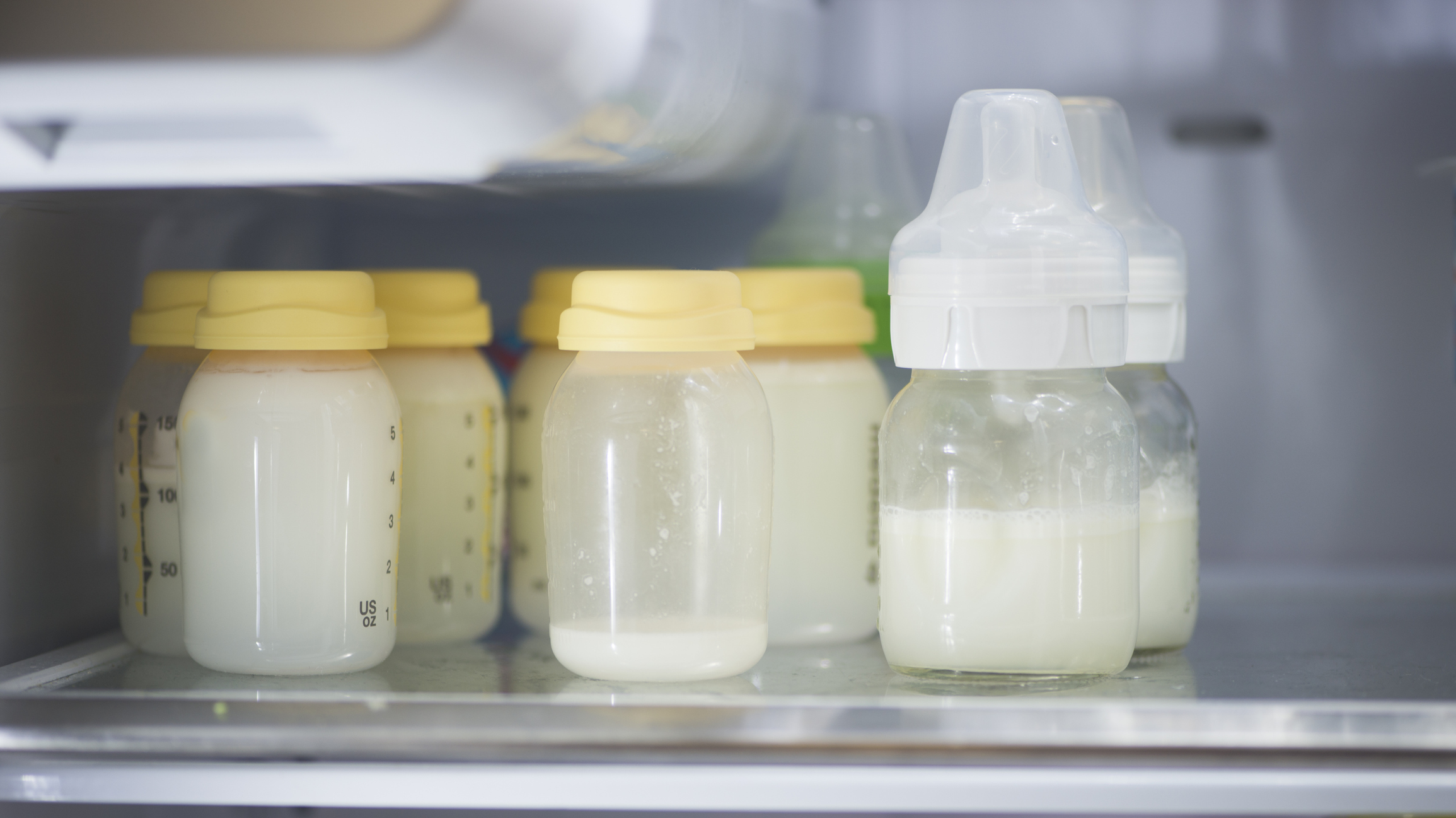Expert reveals her top tips for keeping 'hangry' babies satisfied when weaning
Hungry and unhappy often sit in the same sentence when it comes to our bundles of joy

Parenting advice, hot topics, best buys and family finance tips delivered straight to your inbox.
You are now subscribed
Your newsletter sign-up was successful
Weaning your baby onto solids should get underway in earnest at around six months, according to the NHS, and once your little one gets a taste for baby rice, mushed up banana and more you’ll be surprised at just how quickly their appetites can develop.
And just like us grown ups, when children feel that familiar stomach growl and don’t have a snack on hand to satisfy, they can make the jump from hungry to hangry in an instant.
The reason? After a period of hunger – yep, 10 minutes post polishing off a bowl of porridge counts in baby time – blood sugar levels can start to dip causing a surge in hormones including cortisol, known as the stress hormone, and adrenaline, also known as the ‘fight or flight’ hormone.
“Babies get hangry in the same way adults do,” explains infant nutrition specialist and co-founder of baby food brand Piccolo Alice Fotheringham.
“In fact, babies can go from hungry to hangry much quicker than adults because their tummies are so small. A hangry baby can be stressful for both baby and parent, but there are other ways to make sure it doesn’t get to that point.”
Below Alice reveals her top tips for keeping baby hanger at bay.
1) Spot the warning signs
Babies aren’t afraid to show when they’re unhappy and if they go from giggling to a shrill cry and furiously chomping on their fists or sucking on their fingers, hunger could be the cause.
Parenting advice, hot topics, best buys and family finance tips delivered straight to your inbox.
2) Keep milk on the menu
“When parents start weaning their babies onto solids they often start to use milk as a sideline, but actually in the first year of a baby’s development, food is more about exploration and learning rather than nutrition,” says Alice.
“It’s important parents don’t take milk away too soon. Just because babies are showing an interest in different types of food during the weaning process, it doesn’t mean milk becomes less important.
“A teaspoon of breastmilk or formula is more nutrient dense than for example a teaspoon of carrots, and because babies ingest milk quicker it satisfies a hangry baby much more effectively than food. Being organised with milk can be the secret to targeting hanger.”

READ MORE: Baby weaning guide: Everything you need to know about weaning your baby
3) Make more, for fewer meltdowns
“Preparation is key. If you’re at home I recommend cooking extra vegetables from your own dinner and leaving them unseasoned, but maybe drizzling with a little olive oil for some good fats which keep babies full. Then, you can store the vegetables in the fridge overnight in some Tupperware and have them on-hand to keep your baby busy when hanger strikes,” Alice continues.
“You can also cook some extra pasta and keep it in the fridge, and it’s not as messy as something like yoghurt.”
Miriam Habtesellasie is a freelance lifestyle writer who has contributed content to GoodTo, Woman&Home, Women and Idealhome.co.uk. Miriam is based in London and is a fan of everything interiors, she admits to being spoilt for choice living in the capital. From stunning architecture right the way through to eye-catching department store window displays, she believes there’s always an angle to be found that can translate to our abodes.